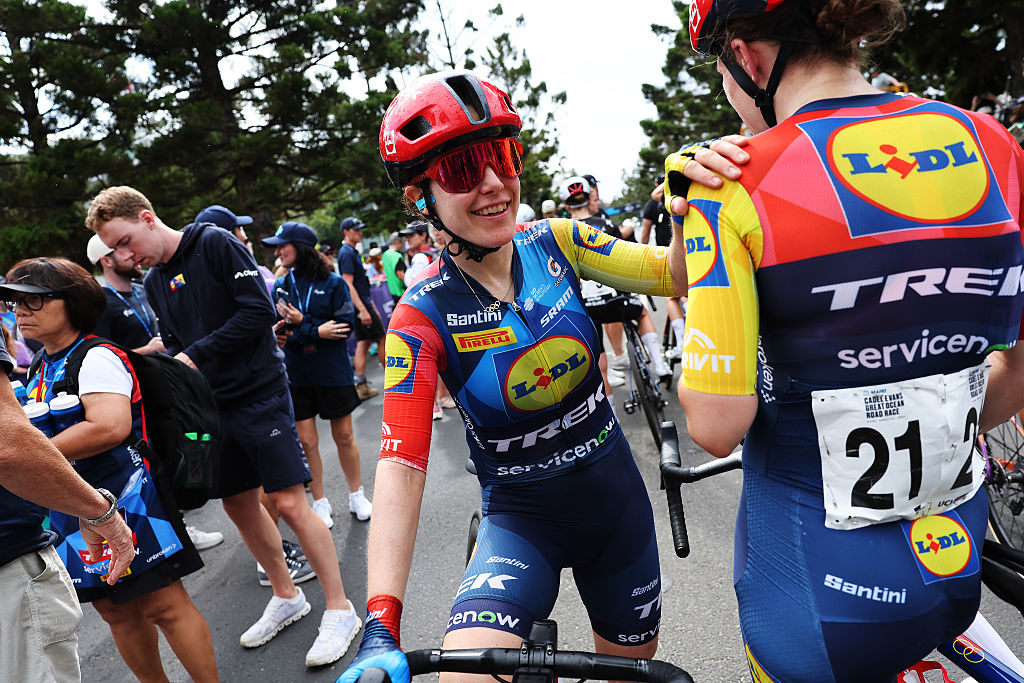Tinkov and Riis: The Anatomy of a Power Struggle
Why has Tinkov taken action now?
The latest race content, interviews, features, reviews and expert buying guides, direct to your inbox!
You are now subscribed
Your newsletter sign-up was successful

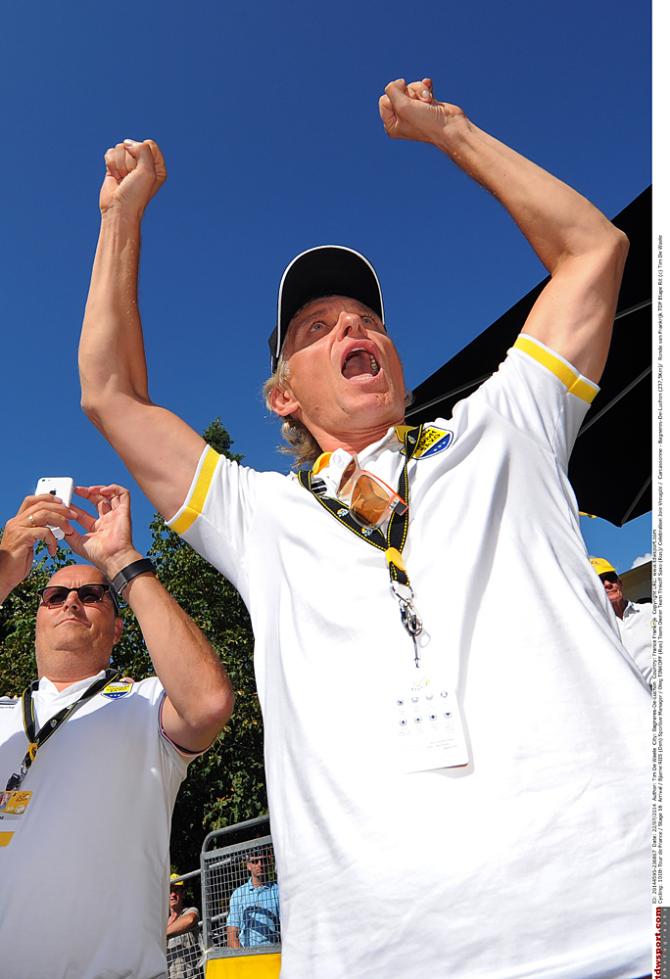
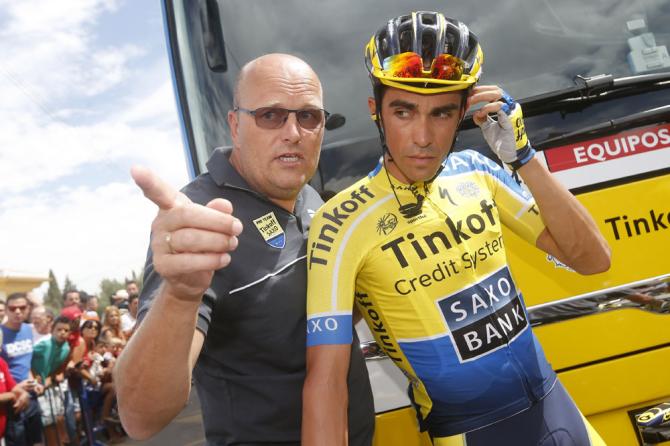
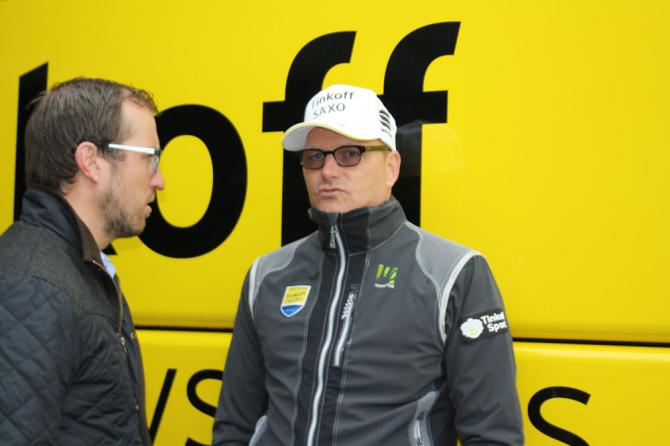
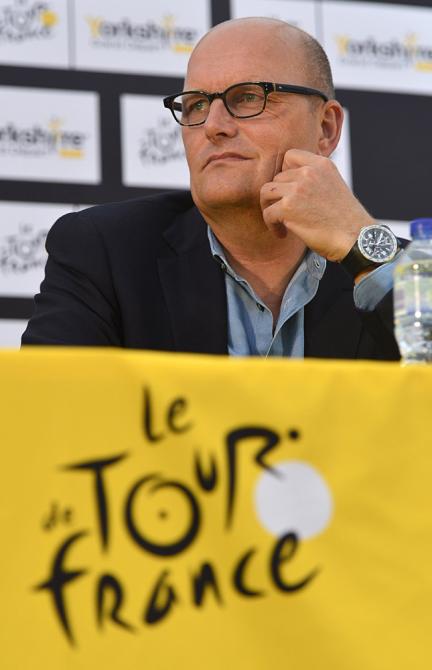
The news of Bjarne Riis's suspension from his team manager’s role at Tinkoff-Saxo has prompted vocal criticism of Oleg Tinkov. But why has Tinkov really acted now?
Riis suspended from Tinkoff-Saxo
Tinkoff-Saxo confirm Riis suspension
News shorts: Possible replacements for Riis, Neylan signs for Orica-AIS
Breschel: I want Riis to stay with the team
Tinkoff-Saxo to announce decision on Riis this Sunday
Contador crashes hard at Volta a Catalunya
Tinkoff-Saxo and Riis part ways
Riis keeps a low profile after Tinkoff-Saxo divorce
Tinkov: We don't need a star manager
Saxo Bank CEO denies plan to end team sponsorship
Danish doping report: Riis, Team CSC and the main revelations
When Oleg Tinkov said three years ago that he and Bjarne Riis would gel because the Dane was exactly like his Estonian wife, it was difficult not to snigger.
Tinkov's bulging eyes, though, confirmed that his point was meant in earnest. He went on to explain: "Sometimes these things work. My wife is the same. You can never say. Sometimes plusses and minuses work very well together. They can produce a lot of energy. My wife is very like Bjarne in some ways. She's Estonian, she's very quiet, and, as you said, I'm very flamboyant and energetic. But we've been happily married for 25 years. So, no, I don't see it as a problem."
Tinkov and Riis may yet soldier on to their silver anniversary…but on Tuesday that looked highly unlikely. In a communiqué, the Tinkoff-Saxo team of which Riis is still officially the manager and Tinkov the owner announced that Riis is currently "not being actively involved in the team's activities."
The statement concluded: "No decisions have been taken and any formal and final decision on any team member – if taken – shall be communicated at the appropriate time. Until then there will be no further comments on this matter."
In the hours that followed, fans and commentators were quick to rubbish the team's claims that neither money nor poor results have motivated Tinkov's decision, but insiders confirm that the causes do indeed lie elsewhere. Yes, Riis is handsomely paid - his salary edging €1million - and, yes, the team has notched only two victories so far in 2015. These, though, can be seen as mere symptoms or contributors to a power struggle that has boiled over in the last fortnight.
L'Equipe accurately reported on Monday that Riis and Tinkov had argued at Tirreno-Adriatico. In truth, the dispute was even more bitter than the French newspaper indicated. The catalyst, or at least one of them, wasn't Alberto Contador's failure to challenge eventual winner Nairo Quintana but an incident that seemed banal, yet in Tinkov's eyes symbolised an alarming pattern: when he arrived at Tirreno-Adriatico and enquired about the whereabouts of his team manager, Tinkov was told that Riis was dining away from the team hotel. Riis apparently didn't hurry back. And Tinkov continued to scratch his head about why the team in Italy appeared to be so overstaffed.
The latest race content, interviews, features, reviews and expert buying guides, direct to your inbox!
It was not the first time that Tinkov had wondered about the way his team was being managed. The difference being that, this time, Tinkov decided that Riis needed to prove himself. He duly ordered the 1996 Tour winner to take Steven de Jongh's place in the first team car the following day. Tinkov presumably wasn't impressed with what he saw, for the team's Technical Manager, Ricardo Scheidecker, was behind the wheel for the final stage of Tirreno and at Milan-San Remo the following weekend.
One individual with intimate knowledge of the team's inner workings argues that, in a sense, Tinkov only has himself to blame: "When Oleg took over the team, he allowed Bjarne to keep too much influence, too much power. Bjarne kept this emperor complex. He still behaves like the owner, not the manager. The problem is that, when you spend the whole day telling someone they can walk on water, they go out in the evening, try to walk on water….and they sink. Also, if there's one thing that Oleg hates more than anything else, it's thinking that someone is making a fool of him. It plays into all of his phobias, all of the stereotypes about dumb Russian businessmen."
Other issues have also come to the fore in the last three weeks. While Riis and Tinkov bickered at Tirreno-Adriatico, the Tinkoff-Saxo riders competing in Paris-Nice endured a difficult, fruitless few days. A major reshuffle of the team's coaching division - and above all a marked increase in training loads - has reportedly left several riders struggling to adapt. Specifically, in France, they complained that they were unusually tired for this time of the season.
Tinkov might easily have written off these and even Peter Sagan's slow start to his Tinkoff-Saxo career as teething problems in a vastly overhauled set-up. The rift with Riis, though, has opened on an old and profound fault-line.
Tinkov has rightly hailed Riis as maybe the best motivator of men in professional cycling. Stories of the Dane growing more and more distant from his riders, of his input becoming sporadic, have nonetheless been legion for several years. One is still repeatedly, gleefully retold by members of Saxo Bank's 2010 Tour de Suisse team: of a rider dropping back to the team car for instructions midway through one key stage, only to find that Riis's ears were plugged with headphones, and his eyes were glued to his laptop. Spooling across the screen were not live pictures of the race but scenes from the hit American drama, The West Wing.
Within months, seven of Saxo Bank's eight riders at that Tour de Suisse had left Riis's team. Six had joined the Schleck brothers' breakaway start-up, Leopard-Trek.
To an extent, it looked for years as though Riis was ready to step back, if not completely away from the day-to-day grind of running a team. The ongoing, seemingly inescapable drone of doping accusations and innuendo had worn him down, as much if not more than his annual battle to find sponsors. In 2013, during a first trial separation from Tinkov, Riis envisioned a future in the fledgling field of cycling hospitality - essentially riding with, coaching and schmoozing rich executives. To this end, he and Saxo Bank chief Lars Seier set up SaxoSport. But a rapprochement with Tinkov at the end of 2013 saved the team and gave Riis a new meal ticket and focus: the role of team manager, with none of the owner's responsibility, some of its perks, and a good salary. He also still had the freedom to get moving with SaxoSport.
Tinkov didn't mind at first, but later started wondering aloud about SaxoSport using team resources - not least the time of Riis, riders and team staff. Tinkov has reacted this year not by blocking SaxoSport but responding in kind, launching the Tinkoff Sport Club. It is their VIP tours and events, and not SaxoSport's, that are now advertised on the team website. At the time of writing, the Tinkoff Sport Club and SaxoSport were offering similar but ostensibly unrelated trips to the Giro d'Italia and Vuelta a España.
The Tinkoff Sport Club is described on the team website as "an exclusive membership only club, where high profile amateur riders are welcomed only upon presentation by other club members and close scrutiny from the Tinkoff-Saxo's management." SaxoSport's packages, meanwhile, are advertised on the Saxo Bank corporate website with the warning: "You do not need to be a client of Saxo Bank to be selected for the programme. However you should be a financial professional or a trader who loves cycling in order to be considered."
All of which seems to bring possible flash-points into sharper focus - but may also not be the whole story. Anti-Doping Denmark's (ADD) long-awaited report into drug use in cycling is being readied for publication. By suspending Riis, one reasonable theory goes, Tinkov has merely beaten the ADD to the punch. Perfectly reasonable, as we said, but also improbable in most sources' eyes: one, because the report might embarrass Riis but is unlikely to result in sanctions, not least because the statute of limitations on the alleged offences has run out; two, because on past evidence, Tinkov won't sacrifice Riis on ethical grounds, not even to save himself the Dane's annual wage.
Our current certainties are therefore outnumbered by doubts. The team's riders surely feel the same way. The popular notion that many of them would choose martyrdom for Riis's cause, walk the plank off Tinkoff's sinking ship, is far-fetched to say the least. Any remaining loyalty to Riis comes a distant second to bigger priorities. Family, mortgages, job security in a volatile sport. When Matti Breschel answered Tinkov's criticism of his performance at Milan-Sanremo with a roll of the eyes, it was a gesture of realism and resignation. Not a call for revolution.
Alberto Contador and Riis now both have houses in Lugano - but Contador speaks much more frequently with De Jongh.
It is also no foregone conclusion Tinkov's cycling empire has entered its dying days. Even if Tinkoff Bank's stock price continues to dive, Tinkov aims to keep his team going with a third-party sponsor. He is indeed already looking. Tinkoff Sport Club was concocted with this goal in mind.
In the short term he may also need to find himself a new team manager. And herein lies another dilemma: would Tinkov opt for a strong character, a man or woman to fight his fire with their own, or pick someone as conflict-averse as Riis, only cheaper, more communicative and tolerant of his interference? Omar Piscina, who worked with Tinkov in his team's first incarnation in 2007 to 2008, is one possible option, and firmly in the second category. The same may apply to Scheidecker.
Alternatively, of course, it could all just be a storm in a teacup, a minor squall that will blow over by the weekend. On Monday night, as a sardonic love letter to his Danish followers, Tinkov tweeted that he was, "sitting, eating herrings with Tuborg, watching a promo of Putin on TV and reading lots of tweets in strange language. Is it about Zoo and giraffe?"
To which the answer was "No". But it had become a bit of a circus, and there was a large elephant in the room.
